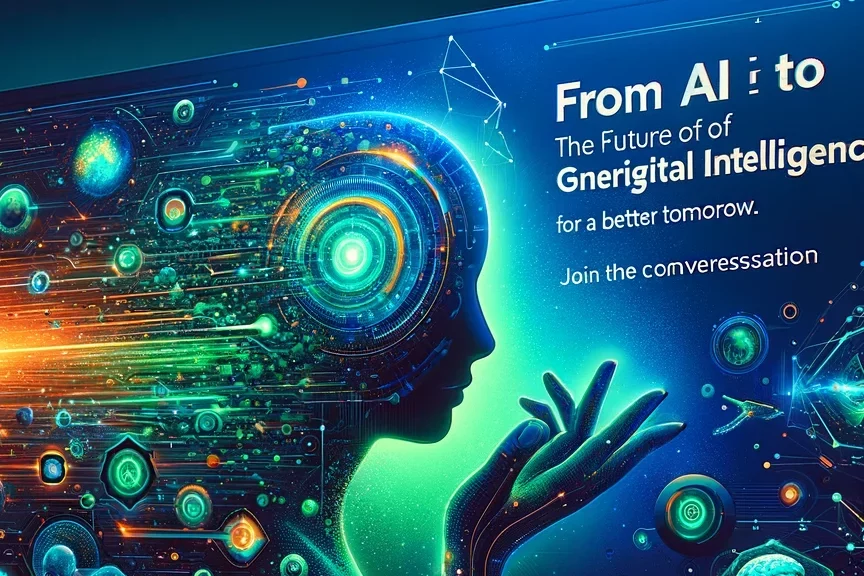From AI to AGI: The Future of Intelligent Machines is Here

Introduction
The era of artificial intelligence (AI) has reached a pivotal point, ushering in a new frontier known as Artificial General Intelligence (AGI). AGI seeks to create machines capable of emulating or surpassing human cognitive abilities, transforming our understanding of technology and its role in society.
The Promise and Potential of AGI
AGI holds immense potential to revolutionize industries and society at large. Imagine machines with the ability to:
- Understand and interact with humans through natural language.
- Reason logically and deduce conclusions based on available information.
- Recognize patterns, solve problems, and make informed decisions.
- Generalize their knowledge and adapt to ever-changing circumstances.
The implications are far-reaching, from enhancing healthcare and education to automating repetitive tasks and optimizing resource allocation.
Timeline for AGI
While there is no definitive timeline for achieving AGI, experts offer varying predictions. Some suggest it could be within the next few decades. Louis Rosenberg, CEO of Unanimous AI, predicts AGI by 2030, while Ray Kurzweil of Google estimates “human levels of intelligence” by 2029.
Challenges Ahead
Despite these optimistic projections, realizing AGI remains a complex endeavor. Key challenges include:
- Replicating the full spectrum of human intelligence, including abstract thinking and creativity.
- Overcoming computational limitations and developing efficient algorithms for AGI systems.
- Addressing ethical concerns and ensuring AGI is used responsibly.
Progress and Advancements
Despite the hurdles, significant advancements are being made. Developments in machine learning, natural language processing, and cognitive computing are paving the way towards AGI. These technologies are enabling machines to:
- Understand complex texts and answer questions coherently.
- Play strategic games like chess or Go at a superhuman level.
- Analyze vast datasets and identify meaningful patterns.
Ethical Implications
As AGI approaches, it is crucial to consider its ethical implications:
- Economic Impacts: AGI-driven automation could displace jobs and widen the income gap.
- Decision-Making: AGI systems may make decisions that impact lives, raising questions about accountability and responsibility.
- Bias and Discrimination: AGI systems must be designed to avoid biases and ensure fairness and equity.
Conclusion
The future of intelligent machines is here, and AGI holds immense promise. However, as we navigate the challenges and opportunities it presents, it is essential to approach AGI development with ethics and foresight. By embracing responsible innovation and shaping the future of AGI, we can unlock its potential to enhance human capabilities and improve society. The dawn of the age of intelligent machines is upon us, and it is up to us to define its trajectory.